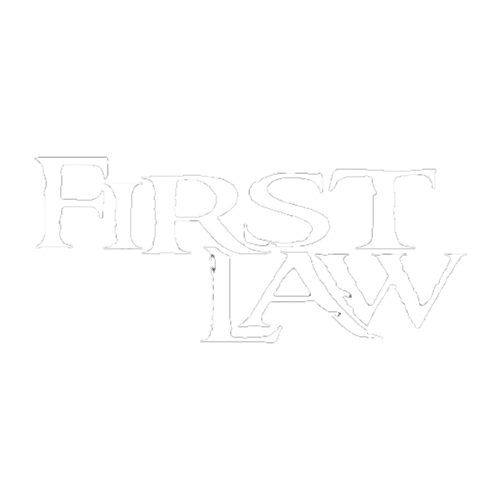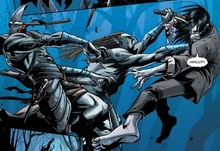| “ | He might not have been much at killing, Forley, but he was a damn good boy for stopping those that were from killing each other. | ” |
— Dogman
| ||
Forley the Weakest is a member of Logen Ninefingers' crew of Named Men, along with Dogman, Rudd Threetrees, Tul Duru Thunderhead, Black Dow and Harding Grim.
Appearance and Personality[]
Forley is a small, nervous man, who's always a little scared. He is quite cowardly, and usually tries to avoid fights if it isn't entirely necessary. Despite his disposition, he is well liked by the others in the crew for his decency. He acts to keep the group together and stop them fighting each other, which is a very useful ability.
History[]
During Bethod's rise to King of the Northmen, Forley's village sent him as their weakest warrior to duel Bethod's champion, Logen, as a form of surrender. Logen allowed him to live, and he became part of Logen's crew. From this experience, Forley is pegged with his unfortunate nickname as a Named Man.
Shortly before the start of the series, bad blood developed between Logen and Bethod. Logen and his crew, including the Weakest, were imprisoned in Carleon. Expecting death, Bethod inexplicably allows them to go into exile[1].
The Blade Itself[]
Forley travels south along with Logen, Dow, Dogman, Grim, Threetrees and Tul away from Carleon. When the group becomes separated after the Shanka attack their encampment, Forley survives with Threetrees until the pair eventually reunite with the rest of the crew - except for Logen who is presumed dead after his fall from a cliff.
With Threetrees takes over as the new chief, they decide to go south. On the way, they come across a burnt-out farmhouse, and the occupants - an old man, a woman and two children - hung from a tree. Outraged, Threetrees and his crew track the culprits down, and teach them a "lesson". They learn that the band are Bethod’s tax collectors, razing the homes of anyone who refuses to pay. Also, that The North is now at war with The Union. Considering their options, they fear with Bethod's army heading south, The North will be undefended from the Shanka. Forley the Weakest proposes warning the only person they can, Bethod himself. Bethod fears all the others in the crew, so the Weakest should be the one to do it. Although, the crew fear for Forley’s safety, it’s the best idea they have.
Forley entered Carleon alone to deliver the warning. However, Bethod has left his son Calder in charge of Carleon while he's away in Angland, and Calder spitefully orders Forley killed. The crew hide away, while Threetrees stand alone on a bridge waiting for the answer. It comes in the form of one of Bethod’s Carls, Bad-Enough and his entourage. Bad-Enough throws Forley’s head in a sack at Threetrees feet. At the sight of their dead friend, the crew attack and butcher all of Bethod’s men without mercy.
Threetrees says the words over Forley's grave honouring his self-sacrifice. The Dogman is surprised by how uncharacteristically emotional Black Dow becomes during the funeral. Afterwards, Threetrees makes an announcement; the enemy of my enemy is my friend; he will join with the Union to fight Bethod. Who’s coming with him?
The Last Argument of Kings[]
When Dogman and Logen stand outside the gates of Carleon, the Dogman considers visiting Forley's grave, but Logen decides against it.
The Heroes[]
Calder remains haunted for ordering Forley's death. He suffers a recurring nightmare of the day he sat in Skarling's chair, and ordered Bad-Enough to chop off Forley's head with his axe. He recalls how, as a younger man, he thought that being merciless would gain him authority and respect, but his father was just immensely disappointed in him.[2]
At the peace conference after the battle, Calder and Dogman come face-to-face. Calder tries to be amiable, but Dogman refuses on account of Forley, who "never did no harm to no one". Calder openly expresses regret, admitting "there isn't a morning comes I don't regret it."[3]
References[]
- ↑ The Blade Itself, Part I, King of the Northmen
- ↑ The Heroes, Day Two, Dawn
- ↑ The Heroes, After the Battle, Terms

